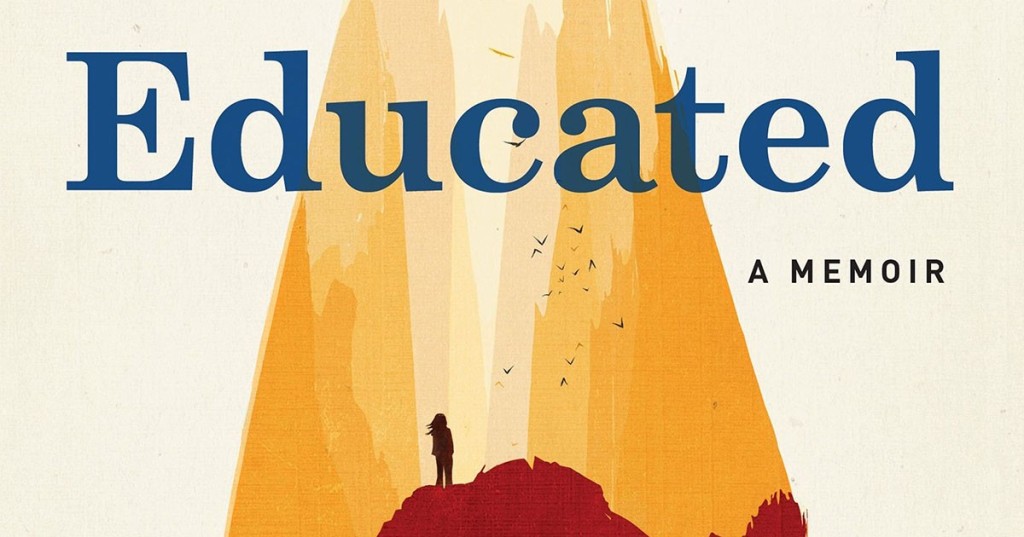3 Talent Lessons from One of the Best Books of the Year
Tara Westover grew up the youngest of seven children in a survivalist family that shunned doctors and hospitals, all forms of government (she has no birth certificate), and public education. The first time Tara set foot in a classroom she was a 17-year-old freshman at Brigham Young University (BYU).
Tara’s first day at BYU was bumpy. She raised her hand and asked a professor to explain what he meant when he said “Holocaust.” It was an innocent question but it earned her disbelieving stares and an “almost violent silence” from her classmates.
While experiences like that made her continually question whether she even belonged on campus, a few key professors saw her potential and went out of their way to nurture it. In the end, Tara graduated from both BYU and Cambridge.
Her best-selling memoir, Educated, has been recommended by Bill Gates, Barack Obama, and Oprah Winfrey. Tara has lots to say about family and education, but the book is also an extended lesson in the importance of looking for potential rather than pedigree. It is a reminder for recruiters and hiring managers that a willingness to forgo degrees from elite schools and resumes packed with name-brand companies and, instead, spot, hire, and develop nontraditional talent can have enormous payoffs.
Here are three lessons from Educated about nurturing nontraditional talent:
1. Focus on skills rather than experience
As an undergraduate at BYU, Tara went to Cambridge University one summer and read with Professor Jonathan Steinberg, an expert on the Holocaust. At their first meeting, Professor Steinberg asked Tara what she wanted to read. She mumbled something about historiography, the principles and theory of writing history. She had, in her own words, decided to study not history, but historians.
“I doubt I managed to communicate any of this,” she writes. “When I finished talking, Professor Steinberg eyed me for a moment, then said, ‘Tell me about your education. Where did you attend school?’”
Tara tried to deflect his question but Professor Steinberg persisted. Finally, she admitted that she’d never been to school. She had never done any of the things that colleges seem to revel in — she hadn’t played sports, served on student council, won academic laurels.
Professor Steinberg’s response to Tara’s admission? “How marvelous,” he said. “It’s as if I’ve stepped into Shaw’s Pygmalion.”
In George Bernard Shaw’s classic play (the basis for the musical My Fair Lady), Professor Henry Higgins gives diction lessons to streetwise flower girl Eliza Doolittle to help her rise above her cockney upbringing. Steinberg, likewise, focused on what really mattered — Tara’s keen mind and relentless curiosity. He was able to spot talent from a most unconventional background by looking at potential, not pedigree.
2. Provide development opportunities for nontraditional talent
Tara’s road to Cambridge was as unlikely as every other path she has taken. She had a one-on-one meeting with Dr. Paul Kerry, her professor of Jewish history at BYU, in which she confessed her lack of any earlier education. Rather than being appalled, Professor Kerry responded by encouraging her to apply to the study-abroad program that he organized each summer at Cambridge University. With his help, Tara was accepted into the program and — after an ordeal getting a passport with no birth certificate — traveled to the United Kingdom.
On her last night in Cambridge, Tara bolted from a formal dinner in the university’s great hall. She had come to believe that at some level — having to do with class and status and expressed in refinement and clothing — she simply didn’t belong there. “Dress us any way you like,” she wrote in her journal, “we are not the same.” Professor Kerry followed her out of the dinner.
He understood that it wasn’t enough for Tara simply to be at Cambridge. If she felt she didn’t belong, she was set up to fail. Students and employees from underrepresented groups need a sense of inclusion and belonging to be fully engaged and productive.
“The most powerful determinant of who you are is inside you,” he told her. “Professor Steinberg says this is Pygmalion. Think of the story, Tara. [Eliza Doolittle] was just a cockney in a nice dress. Until she believed in herself. Then it didn’t matter what she wore.”
The mentorship of Professors Kerry and Steinberg was absolutely critical to Tara’s development and ultimate academic success. Tara later returned to Cambridge and earned a PhD in history.
3. Make it very clear what success looks like
While Professor Steinberg was delighted with Tara’s unconventional background, he didn’t view it as an excuse to relax his demanding standards.
“None of my professors at BYU had examined my writing the way Professor Steinberg did,” Tara writes. “No comma, no period, no adjective or adverb was beneath his interest. . . . A poorly written sentence was a poorly conceived idea, and in his view the grammatical logic was as much in need of correction.”
Tara did not wilt under this scrutiny. She flourished. Two days after she turned in her final essay to Professor Steinberg, he stunned her with his reaction. “I have been teaching in Cambridge for 30 years,” he told her. “And this is one of the best essays I’ve read.”
An unschooled girl who spent her childhood scrambling around her father’s junkyard in rural Idaho, Tara very much needed the extra mentoring and nurturing she got after arriving on campus. She needed the chance to shine, but she also needed to know in clear terms what success looked like.
For recruiters and hiring managers, Educated is a pointed study of the steps needed to find and develop nontraditional talent, to set up people from unconventional backgrounds to feel like they belong and can ultimately succeed in a new setting. It’s also a testament to the power of potential.
To receive blog posts like this one straight in your inbox, subscribe to the blog newsletter.
Topics: Recruiting tips
Related articles




